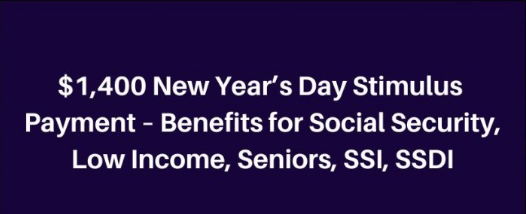In a year marked by economic uncertainties and heightened anticipation of governmental support, a significant development has emerged in the United States, particularly for low-income individuals and beneficiaries of various federal aid programs. The year 2024 might bring a transformative shift for millions as lawmakers propose a new bill aimed at providing substantial financial assistance. This article delves into the details of this proposal, which could potentially disburse $14,400 annually to eligible individuals, including those on fixed incomes such as Social Security, SSDI, and SSI.
A Closer Look at the Proposed Financial Aid for 2024
The program, known as the Support Act, is currently under consideration in Congress and has garnered support from multiple lawmakers. It aims to offer a lifeline to those grappling with financial challenges, particularly in the low-income bracket. The proposal suggests distributing $14,400 per year, not as a lump sum but in monthly installments, to help individuals meet their daily expenses and alleviate financial burdens.
The key criterion for eligibility under this program is income-based. Individuals earning below $75,000 and married couples with a combined income of less than $150,000 annually would qualify for this aid. This threshold includes a broad spectrum of the population, including those on fixed incomes like Social Security retirement, disability SSDI, survivors, spousal, SSI, and VA benefits. The program’s reach is extensive, potentially impacting millions who find themselves at the lower end of the economic scale.
According to the proposed legislation, this financial support would not be a permanent fixture but a temporary measure, designed to last for five years. This time-bound approach aims to provide immediate relief while assessing the long-term viability and impact of such financial aid programs.
The bill also includes provisions for setting up numerous pilot programs across the country. These programs would distribute $500 monthly checks to a select group of participants, helping to gauge the program’s effectiveness. These smaller-scale initiatives have been operational in various forms since mid-2020, with over 100 such programs currently active in the U.S. The results from these pilots indicate that beneficiaries tend to spend the money on necessities, leading to an improved quality of life.
The timing of this proposal is particularly significant given the current economic climate. With signs of economic downturn and recession, such stimulus measures are seen as vital tools to reinvigorate the economy by boosting consumer spending. Furthermore, as the nation heads towards the pivotal elections in November, such proposals are likely to gain more attention, with lawmakers making bold promises to secure their positions.
Read More:
- Bizarre Incident at Bass Pro Shops Alabama Man’s Nude Aquarium Dive Follows Car Crash
- Breaking News: Rollover Crash Results in Hospitalization of Two Teens in League City
- Flora Pizzeria Bringing Sourdough Innovation to Washington DC’s Pizza Scene
The year 2024 stands as a potentially transformative period for low-income and fixed-income Americans. The Support Act, if passed, could mark a significant shift in how financial aid is distributed and who benefits from it. While the program’s success is contingent on legislative approval and effective implementation, it undoubtedly opens up a conversation about the role of governmental support in alleviating economic hardship. As the nation moves closer to the elections, it remains to be seen how this proposal will fare amid the political and economic discussions of the times. For now, it offers a glimmer of hope to millions who are in dire need of financial assistance.

